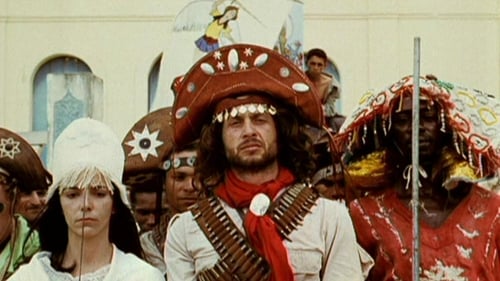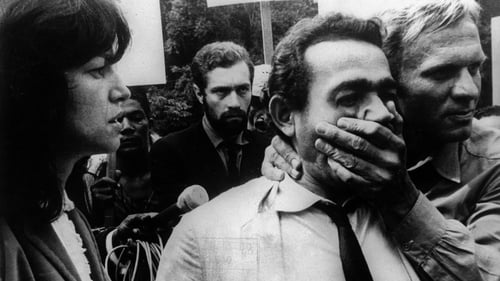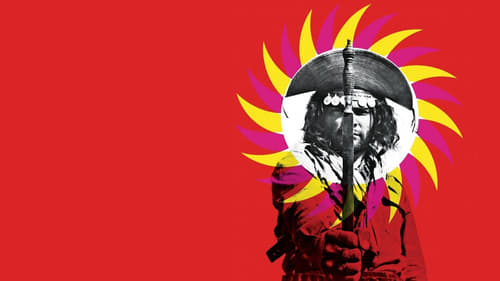
Director

Director

Writer
The painter Tino, in professional and political crisis, receives a telegram from his mother-in-law, Selma, announcing her return from Europe. After his wife's death, Tino continues living with Selma, with whom he had ambiguous relations, which he now wants to sever. Weak at this impossible love, he asks the maid Enedina to lock him in his room. There, he revives memories through letters, notes and photographs. Selma's son João is waiting for her at the airport and dreams of loving fulfillment in his own mother's arms.

Director
The painter Tino, in professional and political crisis, receives a telegram from his mother-in-law, Selma, announcing her return from Europe. After his wife's death, Tino continues living with Selma, with whom he had ambiguous relations, which he now wants to sever. Weak at this impossible love, he asks the maid Enedina to lock him in his room. There, he revives memories through letters, notes and photographs. Selma's son João is waiting for her at the airport and dreams of loving fulfillment in his own mother's arms.

Director

Screenplay
Life on the Jaramataia farm in the interior of Paraíba and the relations between the cowboys and the owners of the land.

Director
Life on the Jaramataia farm in the interior of Paraíba and the relations between the cowboys and the owners of the land.

Writer

Director

Writer

Director

Writer
A vision of the different forms of handicraft production in the interior of Paraíba.

Director
A vision of the different forms of handicraft production in the interior of Paraíba.

Director

Director

Director
In the interior of Paraíba a tournament between cowboys who must demonstrate mastery in knocking an ox down by the tail while they ride.

Set Decoration
A new incarnation of Cangaceiro bandits, led by Coirana, has risen in the badlands. A blind landowner hires Antônio to wipe out his old nemesis. Yet after besting Coirana and accompanying the dying man to his mountain hideout, Antônio is moved by the plight of the Cangaceiro’s followers. The troubled hitman turns revolutionary, his gun and machete aimed towards his former masters.

Director
In the late 1960s, Thomas Farkas imported equipment suitable for direct sound, and released a collection of documentaries called "Brasil Verdade" ("True Brazil"), after the Military Coup d'État took place in Brazil, which happened without any popular resistance or revolution or reaction of the society. The five short films are directly related to this fact and its consequences to the country.

Screenplay
In the village of Leva-e-Traz, the discovery of a oil field is responsible for a mass evasion of the townspeople. Left are the old and incapable for the extraction job. When the local priest announces he, too, is leaving the town, Satan emerge thrilled with the chance of overtaking the place.

Director
In the village of Leva-e-Traz, the discovery of a oil field is responsible for a mass evasion of the townspeople. Left are the old and incapable for the extraction job. When the local priest announces he, too, is leaving the town, Satan emerge thrilled with the chance of overtaking the place.

Costume Design
Eldorado es un país ficticio latinoamericano donde vive el idealista, poeta anarquista y periodista Paulo Martins. Dos políticos, el populista Felipe Vieira y el conservador Porfirio Díaz, luchan por el poder en esta compleja realidad tropical donde nada es lo que parece.

Art Direction
Eldorado es un país ficticio latinoamericano donde vive el idealista, poeta anarquista y periodista Paulo Martins. Dos políticos, el populista Felipe Vieira y el conservador Porfirio Díaz, luchan por el poder en esta compleja realidad tropical donde nada es lo que parece.

Narrador
On the dry ground of the caatinga and on the rocky slopes of the sertão, the goat survives. Organic parts of the country landscape, linked to the economy of certain regions, provide milk, meat and skin for export.

Narrator
The origins of "cangaço", armed brigands in the Northeast between 1935 and 1939, interviews with some survivors of the fighting, police and outlaws movement. Interspersed with testimonials, authentic sequences of films made in 1936 by Benjamin Abraham, an Arab peddler who managed to film the famous band of Virgulino Ferreira da Silva, the "Lampião".

Director
The origins of "cangaço", armed brigands in the Northeast between 1935 and 1939, interviews with some survivors of the fighting, police and outlaws movement. Interspersed with testimonials, authentic sequences of films made in 1936 by Benjamin Abraham, an Arab peddler who managed to film the famous band of Virgulino Ferreira da Silva, the "Lampião".

Costume Design
Dios y el diablo en la tierra del sol (Deus e o diabo na terra do Sol), el segundo largometraje de Rocha, pertenece a este movimiento renovador del cine brasilero que influirá por años en otros autores latinoamericanos. Inspirado en la "Estética de la violencia", apela al signo que, según Rocha, caracteriza a su pueblo, el hambre, que a la vez es su originalidad, pues el hambre convoca a una violencia transformadora que se convierte en acto revolucionario, donde el colonizador llega a tomar conciencia de la existencia del colonizado.

Art Direction
Dios y el diablo en la tierra del sol (Deus e o diabo na terra do Sol), el segundo largometraje de Rocha, pertenece a este movimiento renovador del cine brasilero que influirá por años en otros autores latinoamericanos. Inspirado en la "Estética de la violencia", apela al signo que, según Rocha, caracteriza a su pueblo, el hambre, que a la vez es su originalidad, pues el hambre convoca a una violencia transformadora que se convierte en acto revolucionario, donde el colonizador llega a tomar conciencia de la existencia del colonizado.

Writer
Dios y el diablo en la tierra del sol (Deus e o diabo na terra do Sol), el segundo largometraje de Rocha, pertenece a este movimiento renovador del cine brasilero que influirá por años en otros autores latinoamericanos. Inspirado en la "Estética de la violencia", apela al signo que, según Rocha, caracteriza a su pueblo, el hambre, que a la vez es su originalidad, pues el hambre convoca a una violencia transformadora que se convierte en acto revolucionario, donde el colonizador llega a tomar conciencia de la existencia del colonizado.

Writer
The life of a runaway slave who founded the Quilombo dos Palmares, an outlaw community of Brazilian slaves.
















